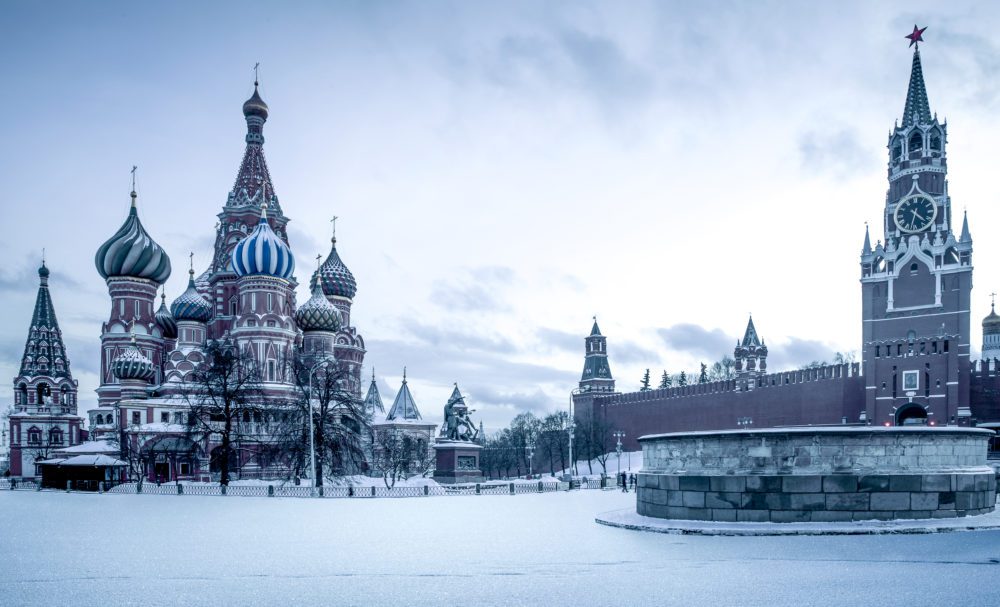Russia banned from Olympics, global sports for 4 years
However, Russian athletes who can prove they are clean and that their data was not manipulated may compete as neutral

The Executive Committee of the World Anti-Doping Agency (WADA) announced today that it has voted unanimously to declare Russia non-compliant for a period of four years. This means it is banned from the Tokyo Olympics and Paralympics in 2020 and the Winter Games in Beijing in 2022, and it may not host international competitions for the next four years.
WADA Executive Committee unanimously endorses four-year period of non-compliance for the Russian Anti-Doping Agency:https://t.co/K8QjAz7u4R
— WADA (@wada_ama) December 9, 2019
A statement published on the WADA website today explains that the vote was taken in response to recommendations from WADA’s Compliance Review Committee, which last month found that the data from RUSADA’s Moscow Laboratory, extracted in January 2019 as a condition of its early re-instatement, had been tampered with. Russia was then given three weeks to account for discrepancies in the data, but did not do so to the satisfaction of the CRC. The statement reads,”These reports conclude that the Moscow data was intentionally altered prior to and while it was being forensically copied by WADA in January 2019.”
RELATED: Sanctions likely as WADA rules RUSADA “non-compliant”
Russia banned from all sport for 4 years?!?
At least they’ll still be able to participate in the 2020 US Elections. ???? https://t.co/LI428O71L1
— Brent Lakatos (@BrentLak) December 9, 2019
The data was needed in order to identify which athletes had cheated. Some had been removed, some had been altered, and “system messages were fabricated in an effort to hamper the work of WADA investigators,” according to the WADA statement. “In addition, measures were taken to conceal these manipulations by back-dating of computer systems and data files in an attempt to make it appear that the Moscow data had been in their current state since 2015.”

A statement published on WADA’s website quotes president Sir Craig Reedie: “For too long, Russian doping has detracted from clean sport… Russia was afforded every opportunity to get its house in order and re-join the global anti-doping community for the good of its athletes and of the integrity of sport, but it chose instead to continue in its stance of deception and denial. As a result, the WADA ExCo has responded in the strongest possible terms, while protecting the rights of Russian athletes that can prove that they were not involved and did not benefit from these fraudulent acts.”
Russia is also prohibited from bidding on the 2032 Olympics, even if the bidding process takes place after the four year ban has passed.
RELATED: WADA gives RUSADA three weeks to explain ‘inconsistencies’ in Moscow lab data
Statement WADA Athlete Committee – “We Support a complete ban on Russian participation at Olympics and Paralympics as the only meaningful sanction” say WADA Athletes @wada_ama @iocmedia @Paralympics @BeckieScott4 @bensandford12 @VictoriaAggar @chiel_warners @gretaneimanas pic.twitter.com/0IKYVP2Btm
— Global Athlete (@GlobalAthleteHQ) December 8, 2019
A New York Times report points out that the ban does not necessarily prevent Russian athletes from participating as neutral (as they did at Pyeongchang in 2018), a possibility that has angered many athletes’ groups. The WADA statement falls short of a complete ban, putting the onus on clean Russian athletes to prove that their data was not manipulated, that they have not failed any drug tests, that they are not mentioned in the McLaren Report, and that they are not in any way implicated in Russian non-compliance, if they wish to compete. The statement claims this was the recommendation of the CRC, which has an athlete representative.
WADA vice president Linda Helleland of Norway took to Twitter to voice her dissatisfaction with any concessions made to Russian athletes, calling instead for a blanket ban.
Important day for everybody who loves sport. Time for WADA and IOC to stand up for the clean athletes. I am a guest writer at German paper #bild today.
Headline: “For IOC- president Bach money is more important than the clean athletes” https://t.co/axxB5AthSh— Linda H. Helleland (@Lindacath) December 9, 2019
Outspoken USADA CEO Travis Tygart also voiced strong disapproval at what he sees as inadequate punishment. In a statement published today, he says: “To allow Russia to escape a complete ban is yet another devastating blow to clean athletes, the integrity of sport and the rule of law. And, in turn, the reaction by all those who value sport should be nothing short of a revolt against this broken system to force reform.”
Russia has also been fined $100,000 and must pay WADA’s costs incurred in investigating the situation since January 2019.
RUSADA’s anti-doping work will not be subject to any monitoring or external supervision during the four-year period.
Russia has three weeks to appeal the ruling before the Swiss-based Court of Arbitration for Sport (CAS), and most believe it will appeal. Any decision by CAS is binding. The New York Times story quoted Russian prime minister Dmitri Medvedev admitting that Russian sport has an ongoing doping problem, while also encouraging an appeal.
UPDATE: On December 10, the Globe and Mail reported that RUSADA executives plan to meet on December 19 to discuss whether to bring an appeal. It also says that RUSADA head Yuri Ganus does not see the likelihood of an appeal to the CAS succeeding.


